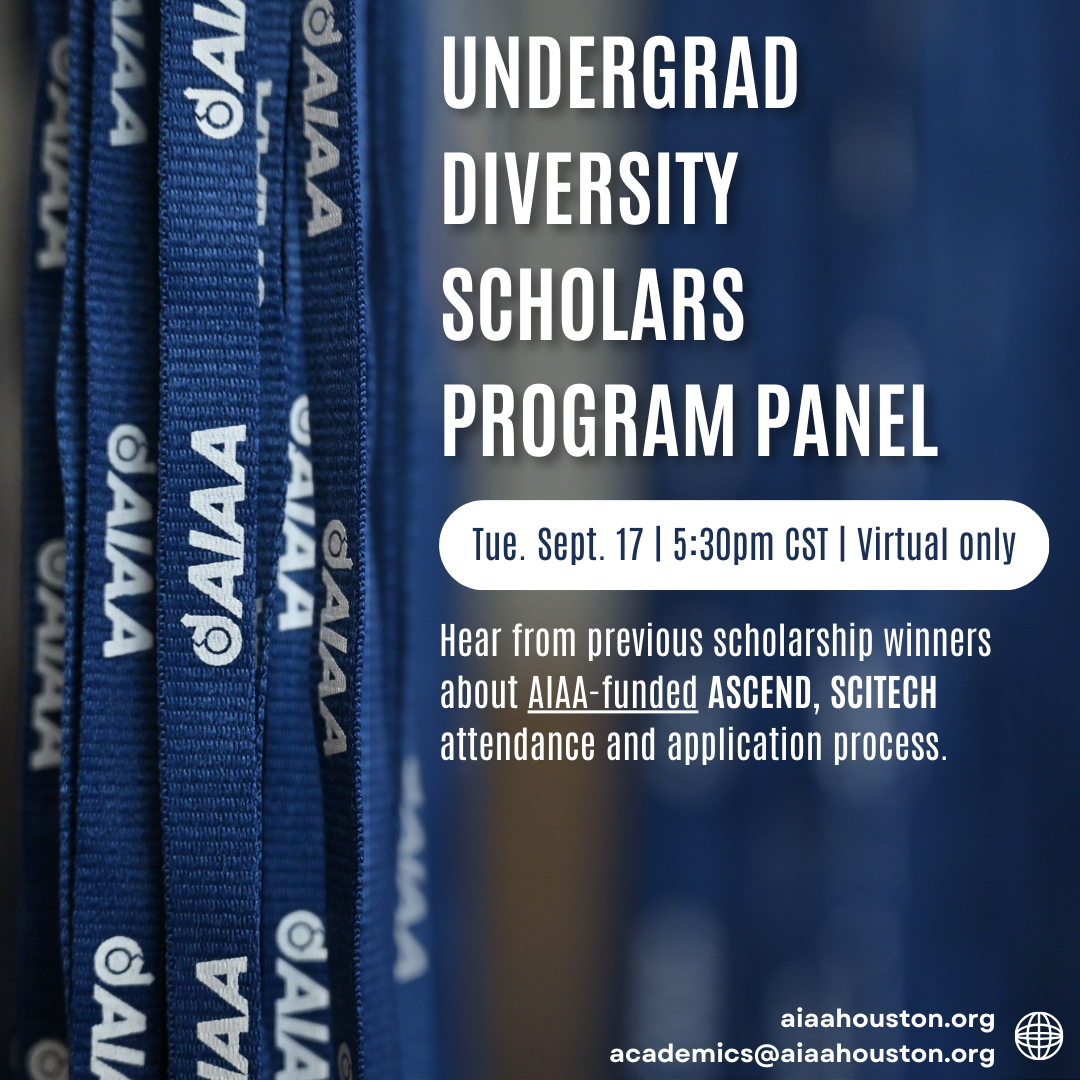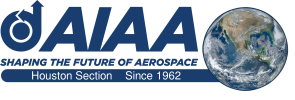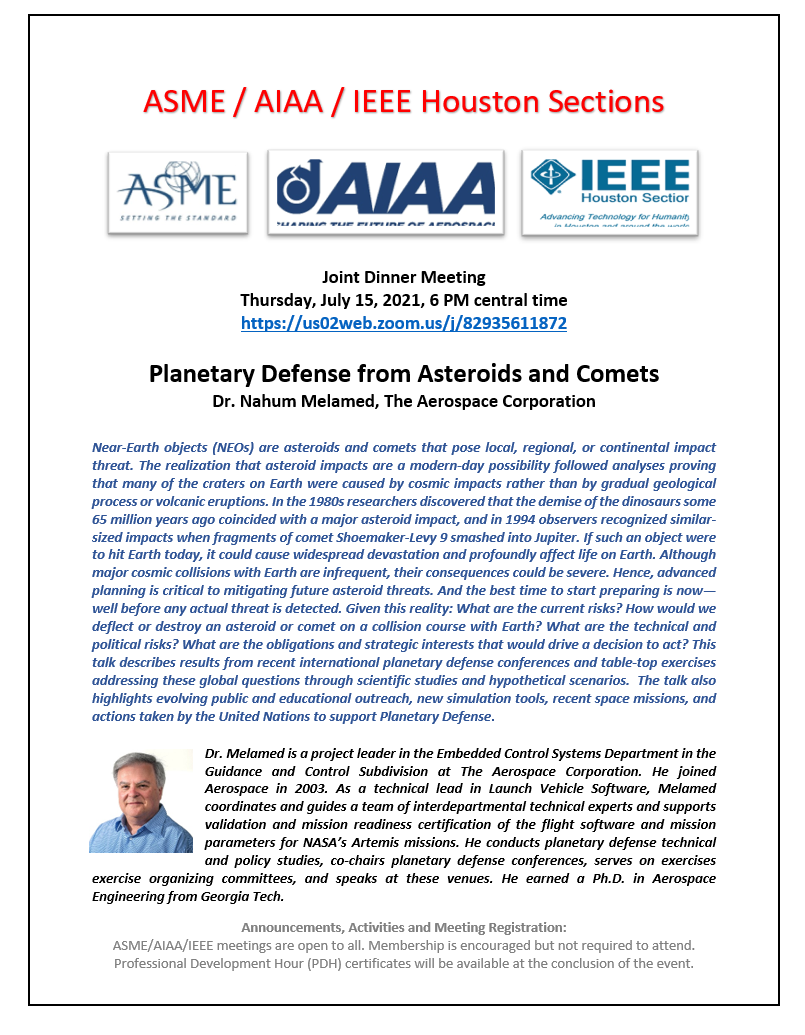UNDERGRADUATES WANTED for all-expenses paid conference travel opportunity:
AIAA Houston will host a virtual panel next Tuesday, Sept. 17 focused on AIAA’s Diversity Scholars Program.
The Diversity Scholars Program provides opportunities for underrepresented minority students with an interest in aerospace to attend one of AIAA’s flagship yearly conferences. Round-trip airfare, conference registration, and hotel accommodations are all covered by AIAA for scholarship recipients.
We’re excited to invite any and all undergraduate students interested in aerospace to hear from past scholarship recipients about their experience.

Add the event to your calendar:
AIAA Diversity Scholarship Panel
Tuesday, September 17 · 5:30 – 6:30pm CST
Join via Google Meet
Join AIAA Houston Section for in-person joint meeting!
Come learn more about patent law basics!
Important information of engineers, scientists, and managers.
Hop to see you!
Join the AIAA Houston section for a virtual young professionals career panel, featuring five distinguished panelists working throughout aeronautics and astronautics. They will discuss early career experiences and advice that propelled them to where they are today, as well as answer questions submitted by the audience. To submit audience questions, please follow this link.
Meeting ID: 952 6624 0278
Passcode: 761376
One tap mobile
+13462487799,,95266240278# US (Houston)
+12532158782,,95266240278# US (Tacoma)
Dial by your location
+1 346 248 7799 US (Houston)
+1 253 215 8782 US (Tacoma)
+1 669 900 9128 US (San Jose)
+1 301 715 8592 US (Washington DC)
+1 312 626 6799 US (Chicago)
+1 646 558 8656 US (New York)
877 853 5257 US Toll-free
888 475 4499 US Toll-free
Meeting ID: 952 6624 0278
Find your local number: https://aiaa.zoom.us/u/acgHZfEOfh
Join by SIP
95266240278@zoomcrc.com
Join by H.323
162.255.37.11 (US West)
162.255.36.11 (US East)
115.114.131.7 (India Mumbai)
115.114.115.7 (India Hyderabad)
213.19.144.110 (Amsterdam Netherlands)
213.244.140.110 (Germany)
103.122.166.55 (Australia Sydney)
103.122.167.55 (Australia Melbourne)
149.137.40.110 (Singapore)
64.211.144.160 (Brazil)
149.137.68.253 (Mexico)
69.174.57.160 (Canada Toronto)
65.39.152.160 (Canada Vancouver)
207.226.132.110 (Japan Tokyo)
149.137.24.110 (Japan Osaka)
Meeting ID: 952 6624 0278
Passcode: 761376
Join us for an ASME, AIAA, IEEE Houston sections joint meeting with special guest speaker: Dr. Nahum Melamed!
ZOOM link: here





